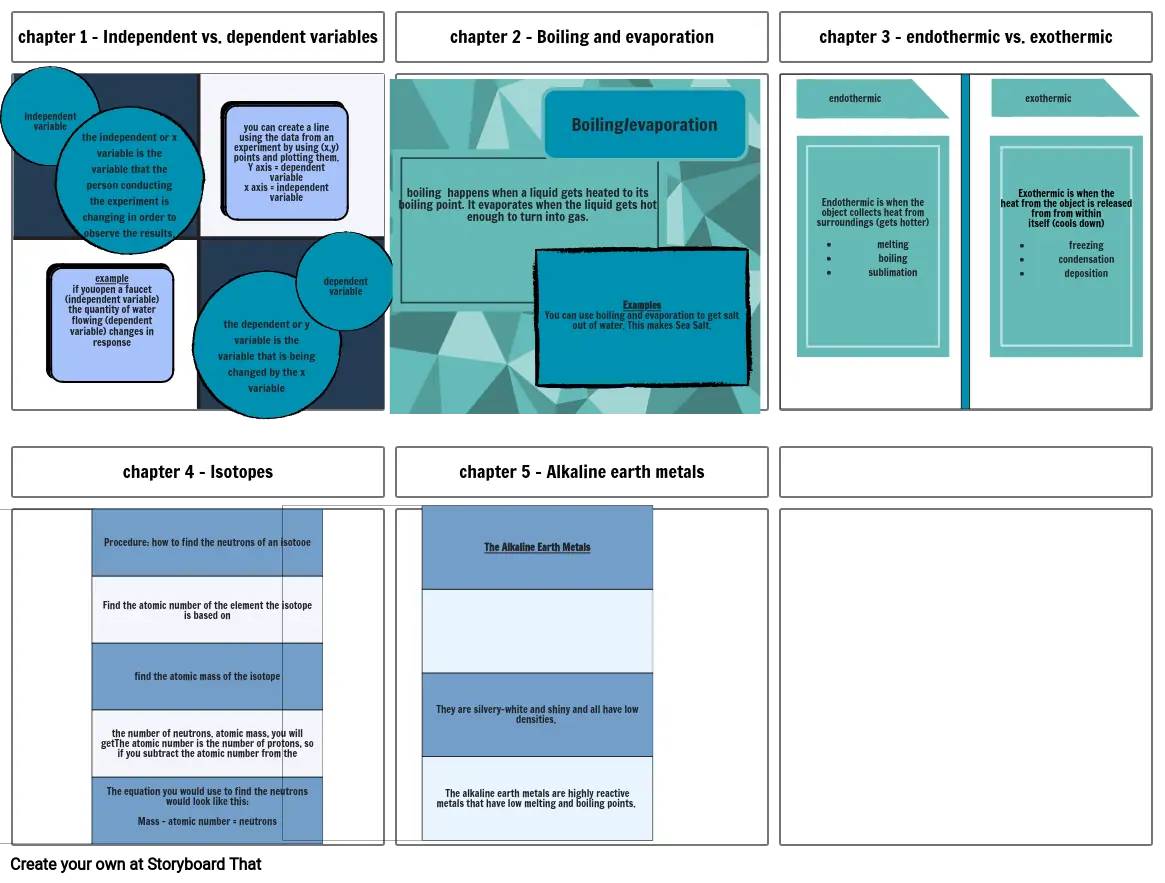1.1 final - science

Text z Príbehu
- Independent variable
- chapter 1 - Independent vs. dependent variables
- exampleif youopen a faucet (independent variable)the quantity of water flowing (dependent variable) changes in response
- the independent or x variable is the variable that the person conducting the experiment is changing in order to observe the results.
- the dependent or y variable is the variable that is being changed by the x variable
- you can create a line using the data from an experiment by using (x,y) points and plotting them.Y axis = dependent variablex axis = independent variable
- dependent variable
- boiling happens when a liquid gets heated to its boiling point. It evaporates when the liquid gets hot enough to turn into gas.
- chapter 2 - Boiling and evaporation
- ExamplesYou can use boiling and evaporation to get salt out of water. This makes Sea Salt.
- Boiling/evaporation
- chapter 3 - endothermic vs. exothermic
- endothermic
- Endothermic is when the object collects heat from surroundings (gets hotter)melting boiling sublimation
- Exothermic is when the heat from the object is released from from within itself (cools down)freezing condensation deposition
- exothermic
- Procedure: how to find the neutrons of an isotooe Find the atomic number of the element the isotope is based on find the atomic mass of the isotope the number of neutrons. atomic mass, you will get The atomic number is the number of protons, so if you subtract the atomic number from the The equation you would use to find the neutrons would look like this:Mass - atomic number = neutrons
- chapter 4 - Isotopes
- The Alkaline Earth Metals The Alkaline earth metals consist of beryllium, magnesium, calcium, strontium, barium, and radium They are silvery-white and shiny and all have low densities. The alkaline earth metals are highly reactive metals that have low melting and boiling points.
- chapter 5 - Alkaline earth metals
-
Bolo vytvorených viac ako 30 miliónov storyboardov

